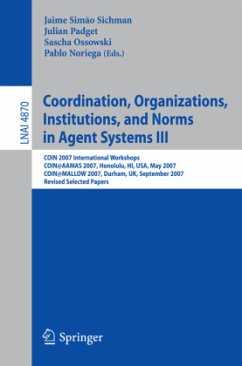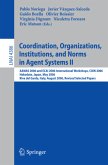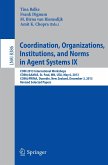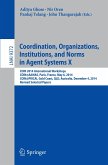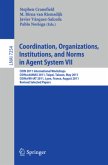In recent years, social and organizational aspects of agency have become - jor research topics in MAS. Current applications of MAS in Web services, grid computing and ubiquitous computing highlight the need for using these aspects in order to ensure social order within such environments. Openness, hete- geneity, and scalability of MAS, in turn, put new demands on traditional MAS interaction models and bring forward the need to investigate the environment wherein agents interact, more speci?cally to design di?erent ways of constra- ing or regulating agents interactions. Consequently, the view of coordination and control has been expanding to entertain not only an agent-centric persp- tive but societal and organization-centric views as well. The overall problem of analyzing the social, legal, economic and technological dimensions of agent organizations and the co-evolution of agent interactions pose theoretically - manding and interdisciplinary research questions at di?erent levelsof abstr- tion. The MAS research community has addressed these issues from di?erent perspectives that have gradually become more cohesive around the four c- cepts that give title to this workshop series: coordination, organization, ins- tutions and norms. The COIN@AAMAS 2007 and COIN@MALLOW 2007 events belong to a workshopseries that started in 2005, and since then has continued with two e- tions per year. The main goalof these workshopsis to bring together researchers from di?erent communities working in theoretical and/or practical aspects of coordination, organization, institutions and norms, and to to facilitate a more systematicdiscussionofthesethemesthathaveuntillatelybeenconsideredfrom di?erent perspectives.
Bitte wählen Sie Ihr Anliegen aus.
Rechnungen
Retourenschein anfordern
Bestellstatus
Storno

